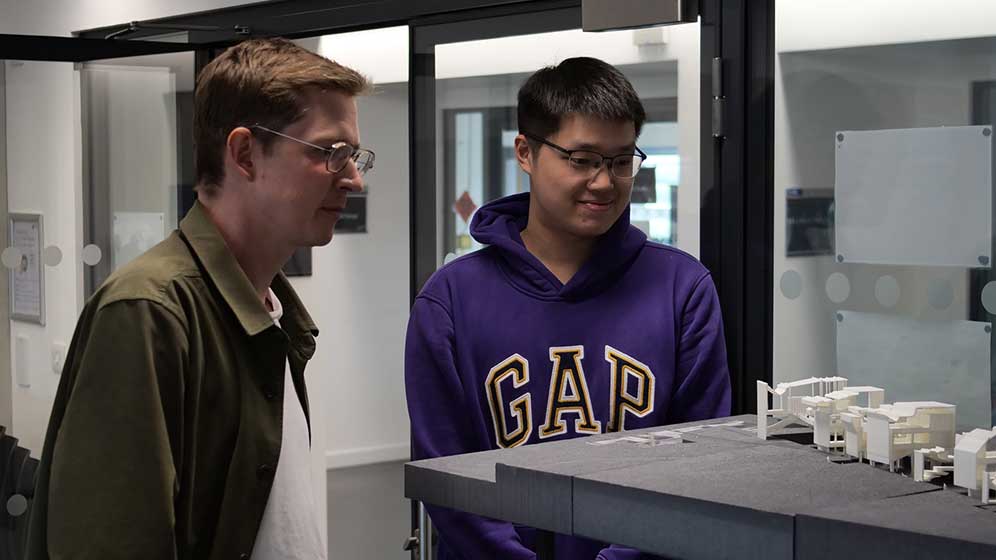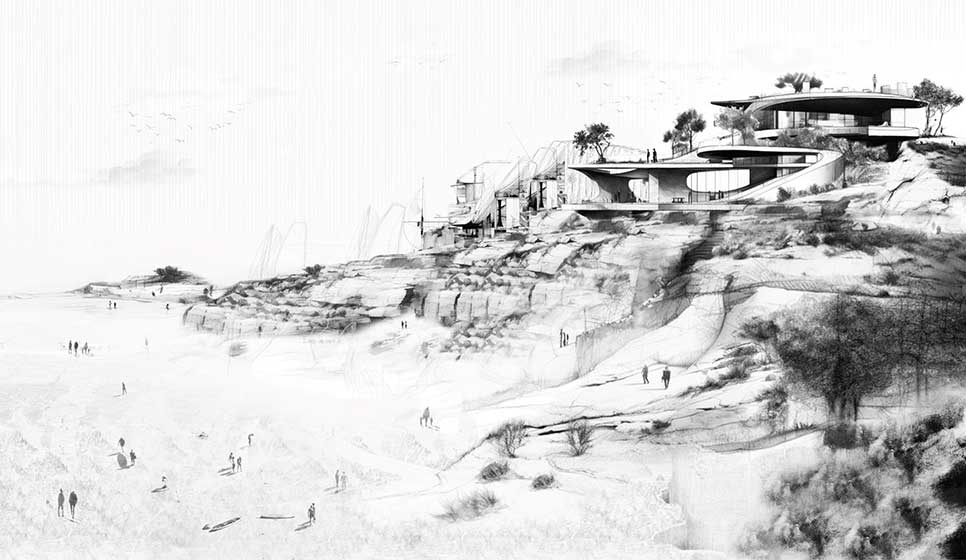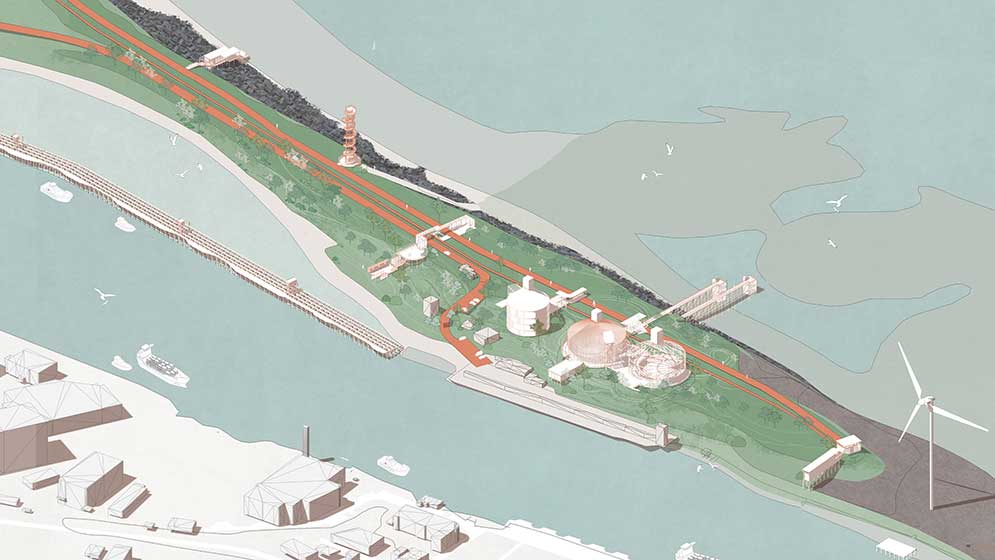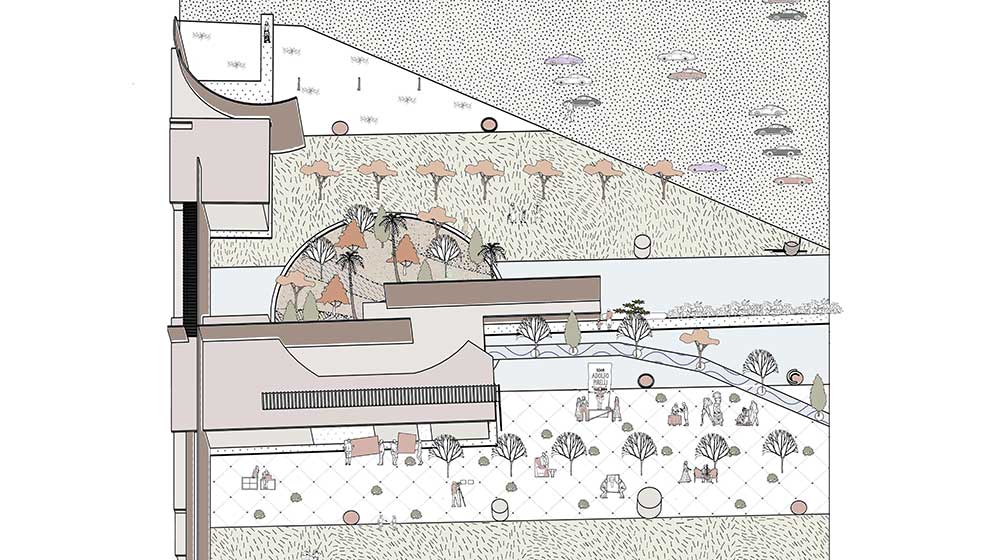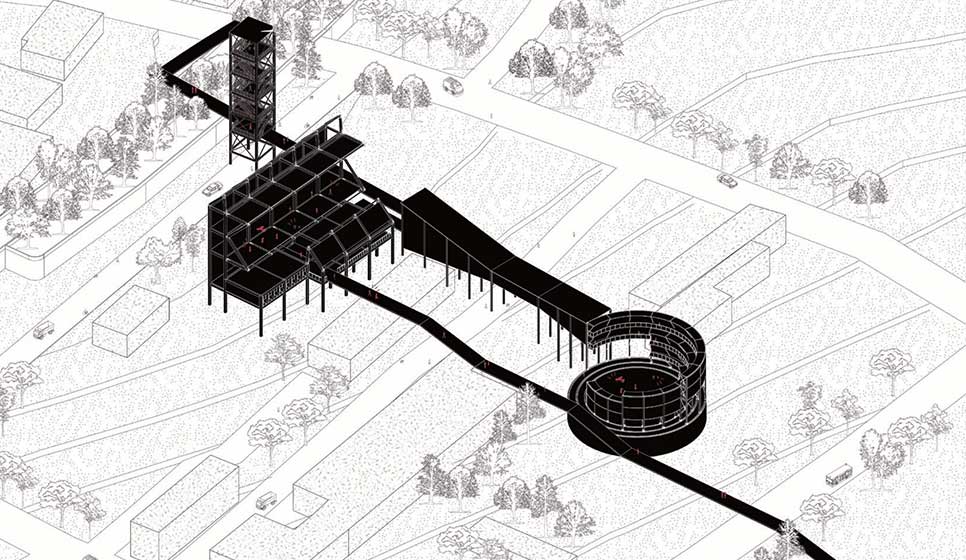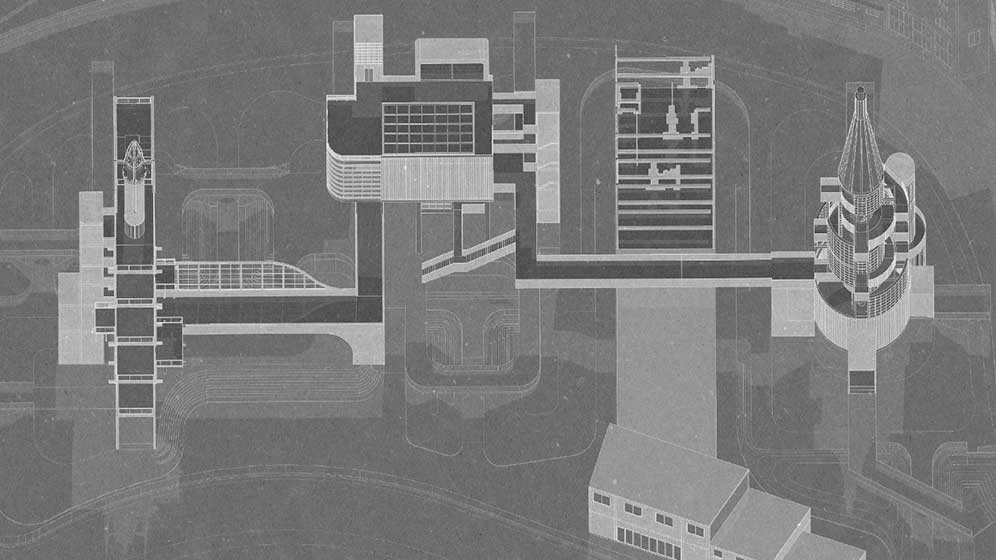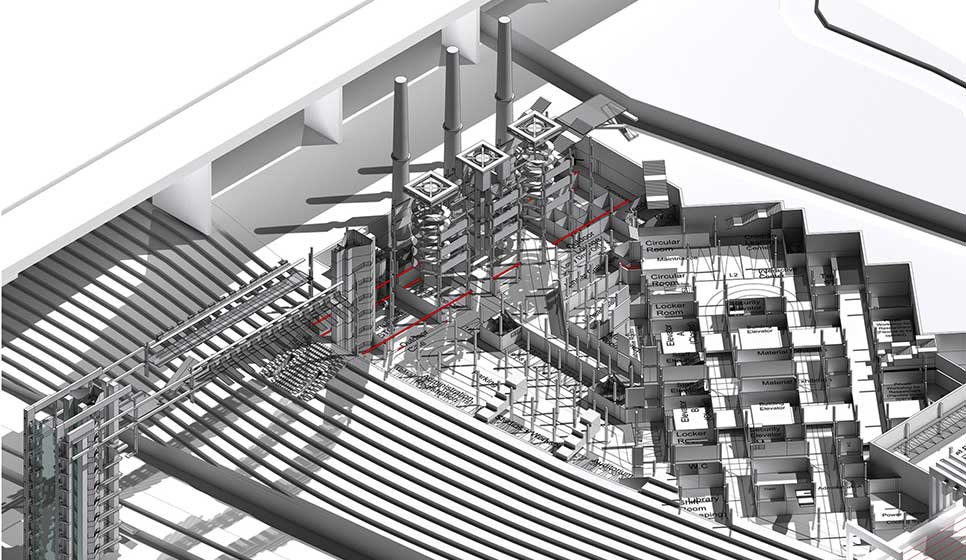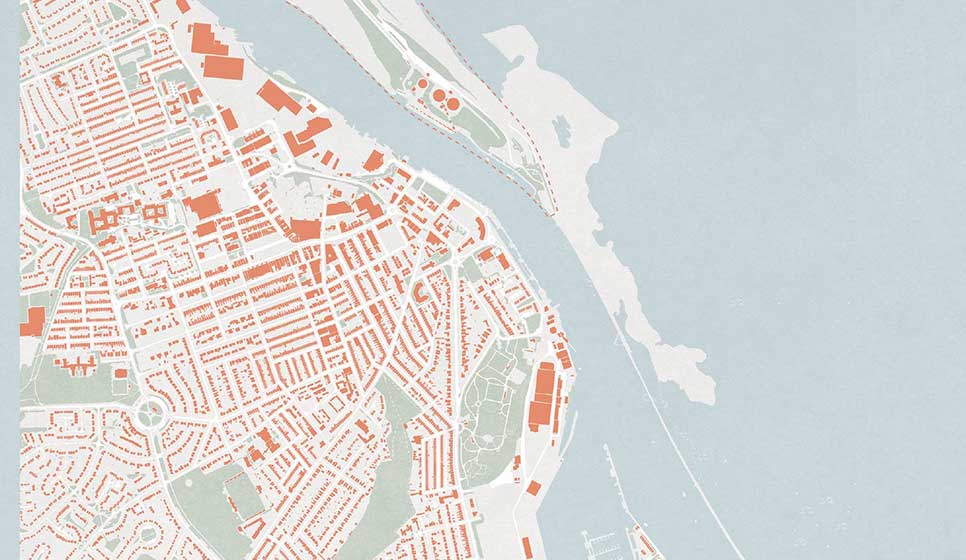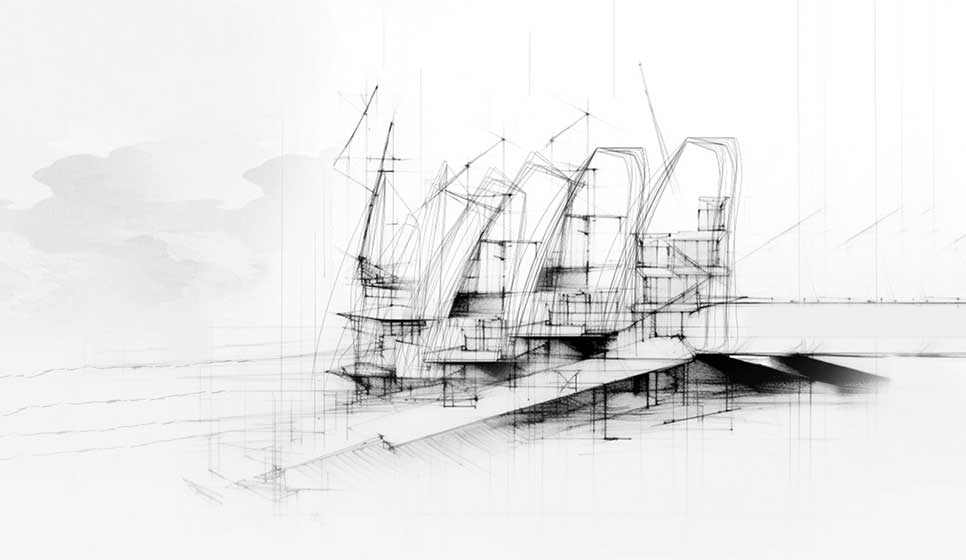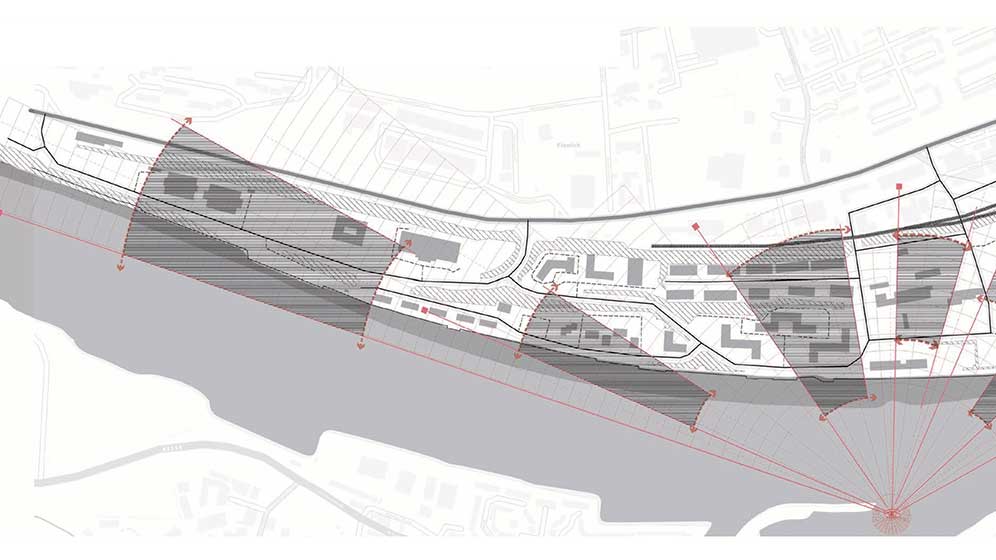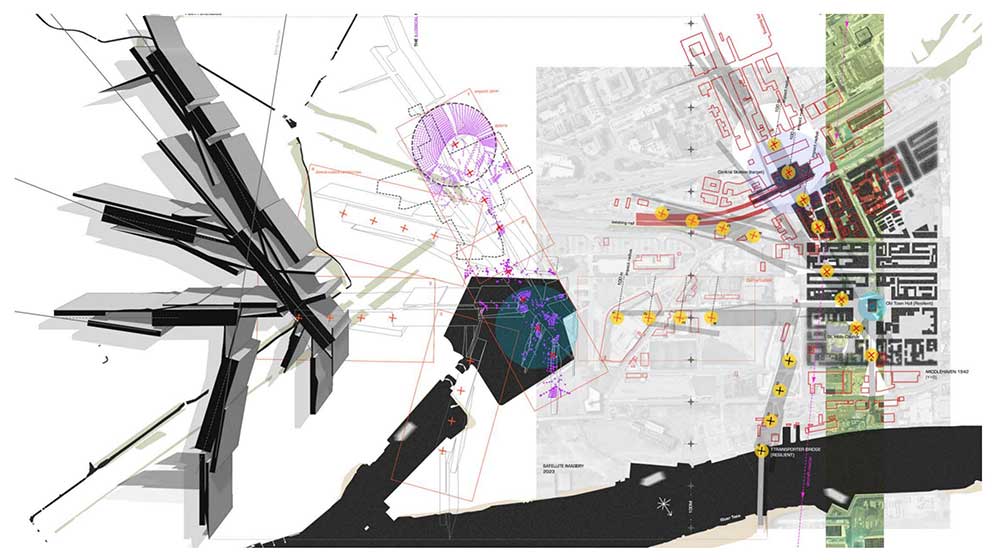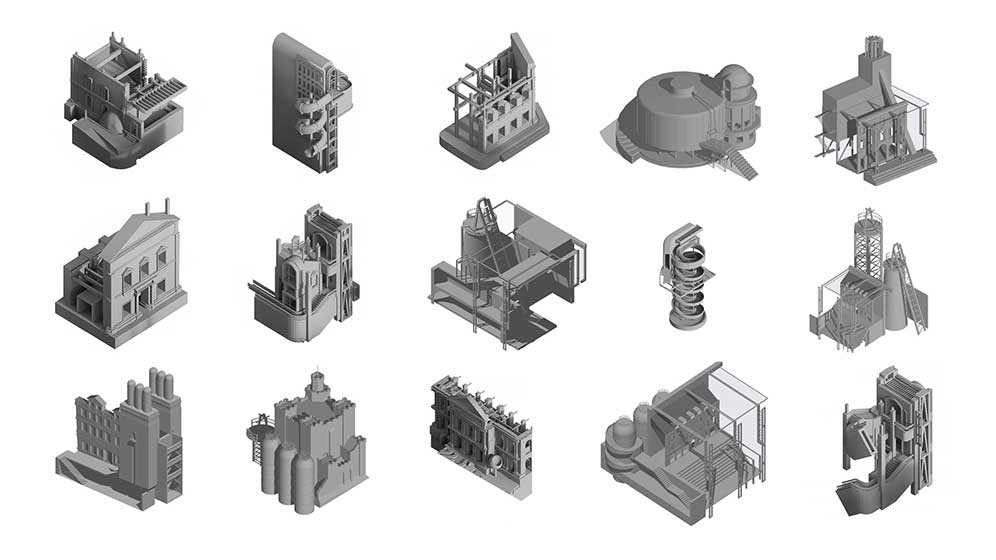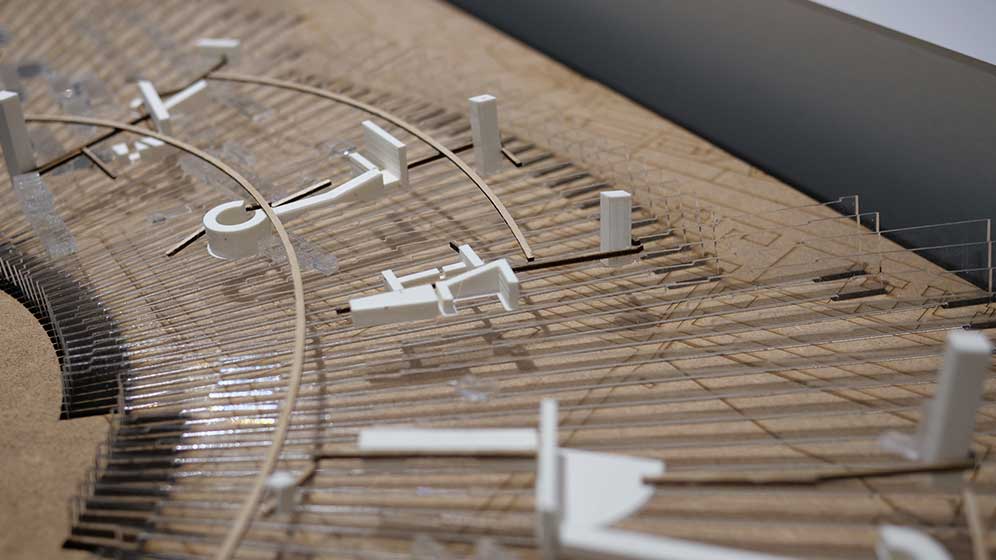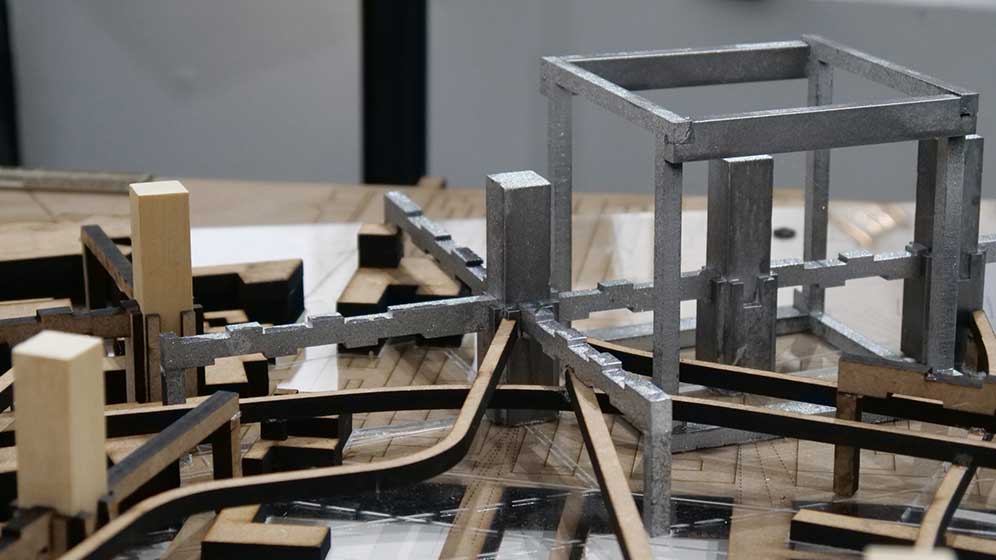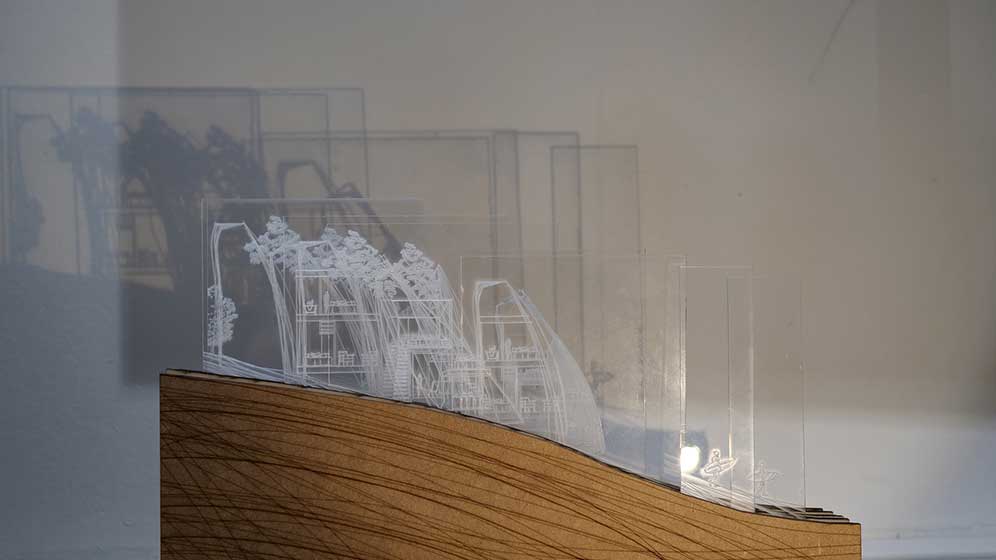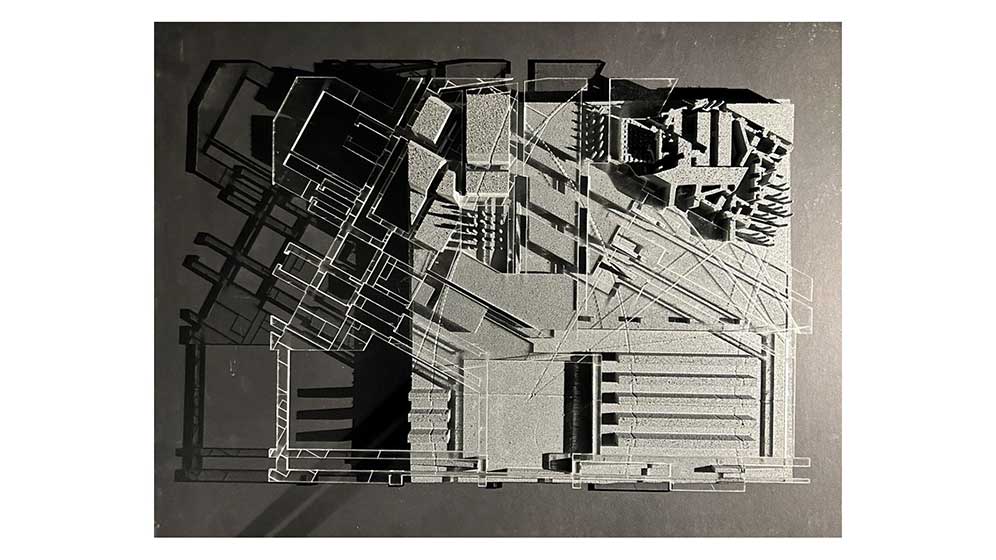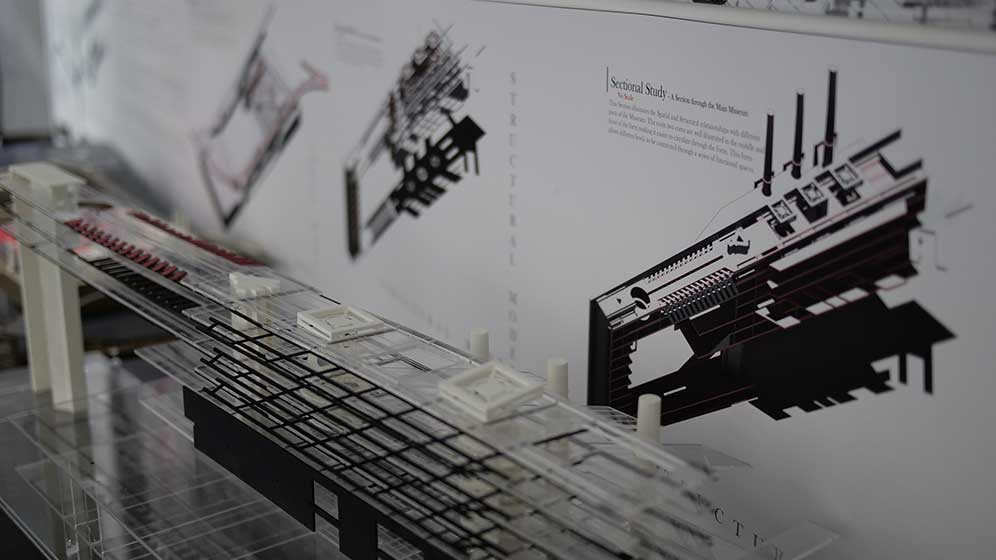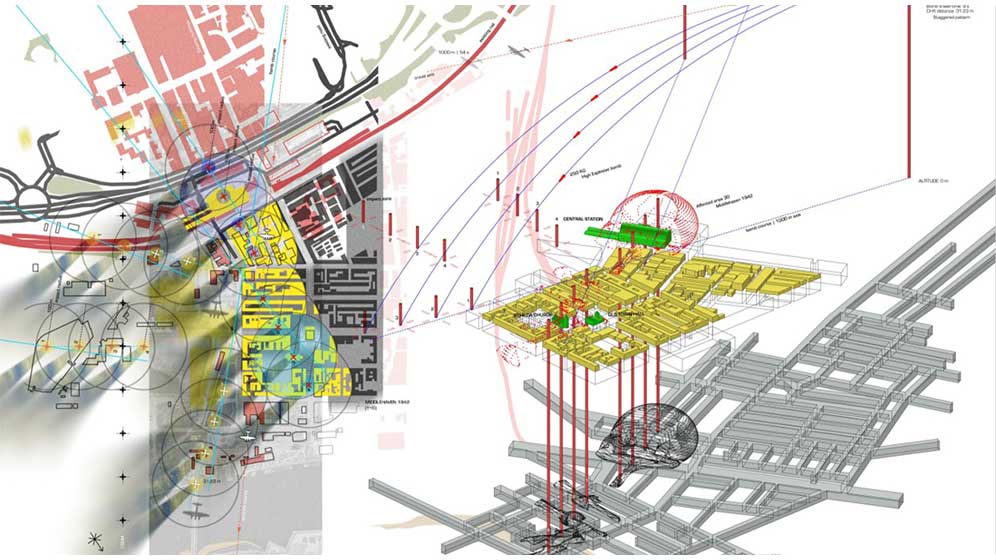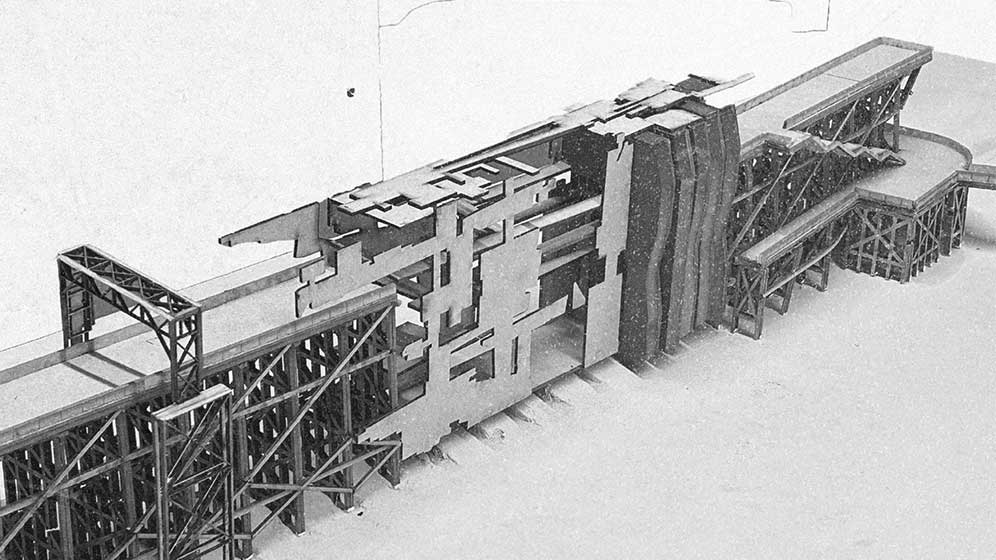Advanced Architectural Design MSc
The Advanced Architectural Design MSc provides the resources for international designers to gain further skills in architectural design.
You are currently viewing course information for entry year:
Start date(s):
- September 2026
Overview
Our MSc Advanced Architectural Design is aimed at international designers who want to enhance their design and research skills.
This post-professional degree helps you consolidate your own identity as a designer. You'll develop your own distinctive specialisms through research-led design, with an emphasis on sophisticated representational techniques. Our aim is to help you become a leading architect in the profession.
The course offers an innovative, absorbing, research-led pathway in advanced architectural design. It can be undertaken on either 1-year or 2-year pathways.
This pathway focuses on the dialogue and interconnection between architecture and urban regions. Each year we select an urban region in the UK, and study it through a critical, poetic and speculative lens. Recently, we’ve been looking at Newcastle and the wider North East region, and the complicated legacy of industrialisation.
A specialism of this programme is our emphasis on experimental, creative representational tools and modes to explore architectural issues. We encourage students to work in a range of media, from hand-drawing and modelling, to 3D modelling, virtual and augmented reality tools, and installation practices.
Our workshop helps facilitate the programme, and each year we work to a large-scale exhibition of work on campus.
The pathway is structured with an intensive first semester, introducing you to a variety of representational techniques and tools, followed by a two-semester long ‘thesis project’, in which you are able to set your own frameworks, sites and explorations for an in-depth architectural study through a range of experimental techniques.
This two year programme extends the first year of the programme into a deeper advanced understanding of the mutual interrelationship between architecture and urban form through integration with modules from our M.Arch programme.
After completing two semesters alongside 1-year programme students, you’ll join an M.Arch design studio in your second year, and take additional modules intended to expand your critical and theoretical thinking around architecture.
Our School’s leading academics in Architecture, Planning, and Landscape will support you. You'll also work with leading practitioners and creative practitioners who research techniques of drawing and designing.
You'll benefit from the School’s strong culture of integrating design theory and practice. Designers must be able to deliver their speculations. This architectural design course helps you to design at the highest level, and implement your designs.
For achievements of the School’s architecture and design students please read our annual Design Yearbook.
The city of Newcastle has a legacy of global design innovation from the nineteenth and twentieth centuries. This legacy is matched by its world-renowned culture-led regeneration in the twenty-first century.
The city boasts both elegant historic architecture and urbanism, and contemporary design. It is a stimulating place to spend time, engaging with advanced design thinking.
READ MORE
Important information
We've highlighted important information about your course. Please take note of any deadlines.
Please rest assured we make all reasonable efforts to provide you with the programmes, services and facilities described. However, it may be necessary to make changes due to significant disruption, for example in response to Covid-19.
View our Academic experience page, which gives information about your Newcastle University study experience for the academic year 2025-26.
See our terms and conditions and student complaints information, which gives details of circumstances that may lead to changes to programmes, modules or University services.
Qualifications explained
Find out about the different qualification options for this course.
An MSc is a taught Master’s degree. It usually involves the study of a science-related subject. It typically includes:
- subject-specific taught modules
- a dissertation or research project of approximately 15,000 – 18,000 words
You'll usually study an MSc full-time over 12 months.
A Master of Science is typically awarded for the successful completion of 120 credits of taught modules and a 60-credit dissertation or research project.
Find out about different types of postgraduate qualifications.
What you'll learn
The emphasis of our programmes is on learning and mastering sophisticated representational techniques that help you to communicate your interests and ideas.
Semester 1
The semester 1 design project is an intensive, iterative site-specific project that introduces you to creative and critical ways of designing through different tools and media.
On this project, you’ll engage with a complex urban site to develop ways of thinking critically about the city, its past and future.
The project is supported with ‘Design Translation Workshops’ looking at techniques of composition, modelling and visualisation, photogrammetry, and more. These workshops directly inform the design project work.
Alongside your design project, you’ll also undertake the module Architecture and Landscape Studies: Critical and Comparative.
This module will introduce you to theories and methods for investigating architecture as a multidisciplinary, multicultural form of practice.
Semester 2 and 3
In semester 2 you'll frame your own Thesis Project, which you continue developing in semester 3 (for 1-year programme students).
This project can be speculative, large-scale and centred on your own research and interests.
The Thesis Project should confidently utilise advanced representational techniques to demonstrate your thinking and ask critical questions relevant to the discipline.
You’ll also take a module, Reading Theory, Thinking Architecture designed to stimulate your thinking and ground your thesis through understanding key contemporary texts on issues related to architecture today.
Modules
You will study modules on this course. A module is a unit of a course with its own approved aims and outcomes and assessment methods.
The module information below is intended to provide an example of what you will study.
Our teaching is informed by research. Course content changes periodically to reflect developments in the discipline, the requirements of external bodies and partners, and student feedback.
Full details of the modules on offer will be published through the Programme Regulations and Specifications ahead of each academic year. This usually happens in May.
To find out more please see our terms and conditions.
Optional modules availability
Some courses have optional modules. Student demand for optional modules may affect availability.
| Compulsory Modules | Credits |
|---|---|
| Advanced Architectural Design 3 | 60 |
| Advanced Architectural Design 2 | 40 |
| Advanced Architectural Design 1 | 40 |
| Compulsory Modules | Credits |
|---|---|
| Advanced Architectural Design 2 | 40 |
| Tools for Thinking About Architecture | 20 |
| Architectural Design- AAD | 80 |
| Advanced Architectural Design 1 | 40 |
| Optional Modules | Credits |
|---|---|
| Urban design and the use of design codes | 20 |
| Architecture Ways of Knowing 1 | 20 |
| Learning Lab: Research by Design A | 20 |
How you'll learn
Depending on your modules, you'll be assessed through a combination of:
- Design or creative project
- Dissertation
- Essay
- Oral presentation
- Portfolio
- Research proposal
- Written exercise
You'll complete a Design Thesis that:
- provides you with experience in design thesis processes and methodology by defining and studying a subject related to your own interests
- develops an ability to frame a subject through carefully chosen representational techniques
- develops a sophisticated architectural response to the issues raised by your design thesis
- is exhibited in a large-scale exhibition of work at the end of the year
Throughout your studies, you’ll have access to support from:
- academic staff
- personal tutors and research supervisors
- our University Student Services Team
- student representatives
- peers
You'll also be assigned an academic member of staff, who will be your personal tutor throughout your time with us. They can help with academic and personal issues.
Your teaching and learning is also supported by Canvas. Canvas is a Virtual Learning Environment. You'll use Canvas to submit your assignments and access your:
- module handbooks
- course materials
- groups
- course announcements and notifications
- written feedback
Your future
Graduate destinations
Graduates have pursued careers both in architectural practice and academia.
We foster an entrepreneurial environment that ensures you'll be well prepared to continue to make active contributions within your chosen career.
Our Careers Service
Our expert Careers Service is here to help you take the next steps in your professional life. We will support you while you’re studying with us and for up to three years after you graduate.
You will have access to expert one-to-one advice and guidance through our campus careers centre and online, along with digital resources, workshops, networking opportunities, and careers and recruitment events.
We’ve been awarded 5 QS Stars for Student Employability (2025). Many of our degrees are shaped by strong links with national and international businesses. We are committed to helping you access real-world experience opportunities and develop key skills through paid work placements and internships.
Quality and ranking
All professional accreditations are reviewed regularly by their professional body
If you’re studying an accredited degree and thinking about working in Europe after you graduate, the best place to find current information is the UK Government’s guidance on recognition of UK professional qualifications in EU member states. This official resource explains whether your profession is regulated in another country, what steps you need to take, and which organisation you should contact.
Facilities
You'll be based in one of the UK’s leading Schools of Architecture. We aim to provide a lively design studio culture across our professional courses making the School a thriving and creative place to be. Our well-equipped workshop includes some of the latest digital and biological manufacturing tools.
The School of Architecture, Planning and Landscape has excellent studio teaching facilities. Our facilities include:
- lively design studios
- exhibition spaces
- well-equipped workshop including the latest digital manufacturing technology
- wet fabrication lab including 3D printers
- molecular biology lab (one of the first in the world to be administered by a school of architecture)
- print media suite
- IT suites
Find out more about the School facilities, including virtual tours of some teaching spaces.
Fees, Funding and Scholarships
Tuition fees for 2026 entry (per year)
As a general principle, you should expect the tuition fee to increase in each subsequent academic year of your course, subject to government regulations on fee increases and in line with inflation.
Depending on your residency history, if you’re a student from the EU, other EEA or a Swiss national, with settled or pre-settled status under the EU Settlement Scheme, you’ll normally pay the ‘Home’ tuition fee rate and may be eligible for Student Finance England support.
EU students without settled or pre-settled status will normally be charged fees at the ‘International’ rate and will not be eligible for Student Finance England support. You may be eligible for a scholarship worth 25% off the international fee. Search our funding database.
If you are unsure of your fee status, check out the latest guidance here.
Scholarships
We support our EU and international students by providing a generous range of Vice-Chancellor's automatic and merit-based scholarships. See our searchable postgraduate funding page for more information.
What you're paying for
Tuition fees include the costs of:
- matriculation
- registration
- tuition (or supervision)
- library access
- examination
- re-examination
- graduation
Find out more about:
If you are an international student or a student from the EU, EEA or Switzerland and you need a visa to study in the UK, you may have to pay a deposit.
You can check this in the How to apply section.
If you're applying for funding, always check the funding application deadline. This deadline may be earlier than the application deadline for your course.
For some funding schemes, you need to have received an offer of a place on a course before you can apply for the funding.
Search for funding and scholarships
Find funding available for your course
Entry requirements
The entrance requirements below apply to 2026 entry.
Qualifications from outside the UK
English Language requirements
Admissions policy
This policy applies to all undergraduate and postgraduate admissions at Newcastle University. It is intended to provide information about our admissions policies and procedures to applicants and potential applicants, to their advisors and family members, and to staff of the University.
University Admissions Policy and related policies and procedures
Credit transfer and Recognition of Prior Learning
Recognition of Prior Learning (RPL) can allow you to convert existing relevant university-level knowledge, skills and experience into credits towards a qualification. Find out more about the RPL policy which may apply to this course
Pre-Master’s and English Language courses
Need an alternative route to study this course? Our International Study Centre offers Pre-Master’s degrees and English language courses to prepare you for study.
How to apply
Using the application portal
The application portal has instructions to guide you through your application. It will tell you what documents you need and how to upload them.
You can choose to start your application, save your details and come back to complete it later.
If you’re ready, you can select Apply Online and you’ll be taken directly to the application portal.
Alternatively you can find out more about applying on our applications and offers pages.
Apply Online
Open days and events
Find out about how you can visit Newcastle in person and virtually
Overseas events
We regularly travel overseas to meet with students interested in studying at Newcastle University.
Get in touch
Questions about this course?
If you have specific questions about this course you can contact:
Jack Blenkinsopp
Learning and Teaching Assistant
School of Architecture Planning and Landscape
Telephone: +44 (0) 191 208 4881
Email: jack.blenkinsopp@newcastle.ac.uk
General enquiries
For more general enquiries, you could also complete our online enquiry form.
Application enquiries
If you've got a question about your application, send us an enquiry via the application portal you applied through.
If you haven't applied yet, you can send your questions via our enquiry form.
Live chat
Our Ncl chatbot might be able to give you an answer straight away. If not, it’ll direct you to someone who can help.
You'll find our Ncl chatbot in the bottom right of this page.
Keep updated
We regularly send email updates and extra information about the University.
Receive regular updates by email
Social Media
Get involved with the School of Architecture Planning and Landscape.
